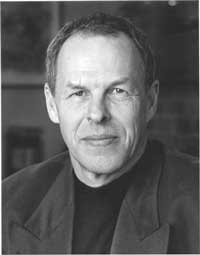By Linden MacIntyre
National Post
August 10, 2009
http://network.nationalpost.com/np/blogs/afterword/archive/2009/08/10/the-bishop-s-man-a -conversation-with-author-linden-macintyre.aspx
"If you scrape away all the political and institutional differences, what is the difference between myself and a priest? That's what I asked myself," says Linden MacIntyre of the methodology he used to get inside the minds of Catholic priests for his latest novel, The Bishop's Man (reviewed on The Afterword here). Most people associate MacIntyre with The Fifth Estate, the investigatory journalism television show he has been hosting on the CBC since 1990. But increasingly his name is becoming attached to Creignish, the small Nova Scotian community where he has set a series of novels about the familial, moral and religious dramas of the hopelessly intertwined lives of its residents.
 |
In this latest book, MacIntyre takes a well-studied look at the sexual abuse scandals that rocked the Catholic church in the 1990s. Though The Bishop's Man is fiction, the story closely mirrors real incidents and characters that MacIntyre encountered during the intensive research that he completed before sitting down to write the book.
"A priest is a professional navigator of moral and ethical minefields," says MacIntyre. In his research, he continually asked himself, "What do I have to do to know about what he does?" Though he's never been a priest, MacIntyre did briefly consider the calling as a young man, and was raised a devout Catholic. His university also had priest instructors, and he counts men of the cloth among his closest friends.
These close relationships contributed to the cultivation of the voice of Duncan MacAskill, the narrator of this novel. MacAskill has been charged by the bishop with the unfavourable task of relocating wayward priests to different parishes so that their sexual abuses may elude detection and scandal. When MacAskill is suddenly assigned to the tiny parish of Creignish, he is forced to renegotiate his relationship with the community, the church and his own family that he has avoided for so many years.
Much of the book addresses the nature of sexual abuse, an issue MacIntyre uncovered in his research for a separate story that was never broadcast. For the story, MacIntyre interviewed a young man who had been abused for years during his adolescence by the same man. MacIntyre was astounded. "I asked this young man how it could have happened," says MacIntyre. "I told him that if someone was abusing me at age 10, he sure as hell wouldn't be abusing me at age 11.'" The man responded, "How can you be sure? You don't know what's right and what's wrong." The conversation revealed the ambiguity of the issue to MacIntyre, and these are the gray areas MacAskill is forced to navigate as the priest of the troubled parish he has inherited. "People will complain that the book is ambiguous in many ways," says MacIntyre, "but life is ambiguous."
Ultimately, the most important thing to MacIntyre was that the voice of Duncan MacAskill rang true. That test came when he passed the completed novel to one of his priest friends. "I told him, 'I don't care about the story, I don't care about the writing,'" says MacIntyre. "'I want to know: is the voice authentic?' He said it was."
Any original material on these pages is copyright © BishopAccountability.org 2004. Reproduce freely with attribution.